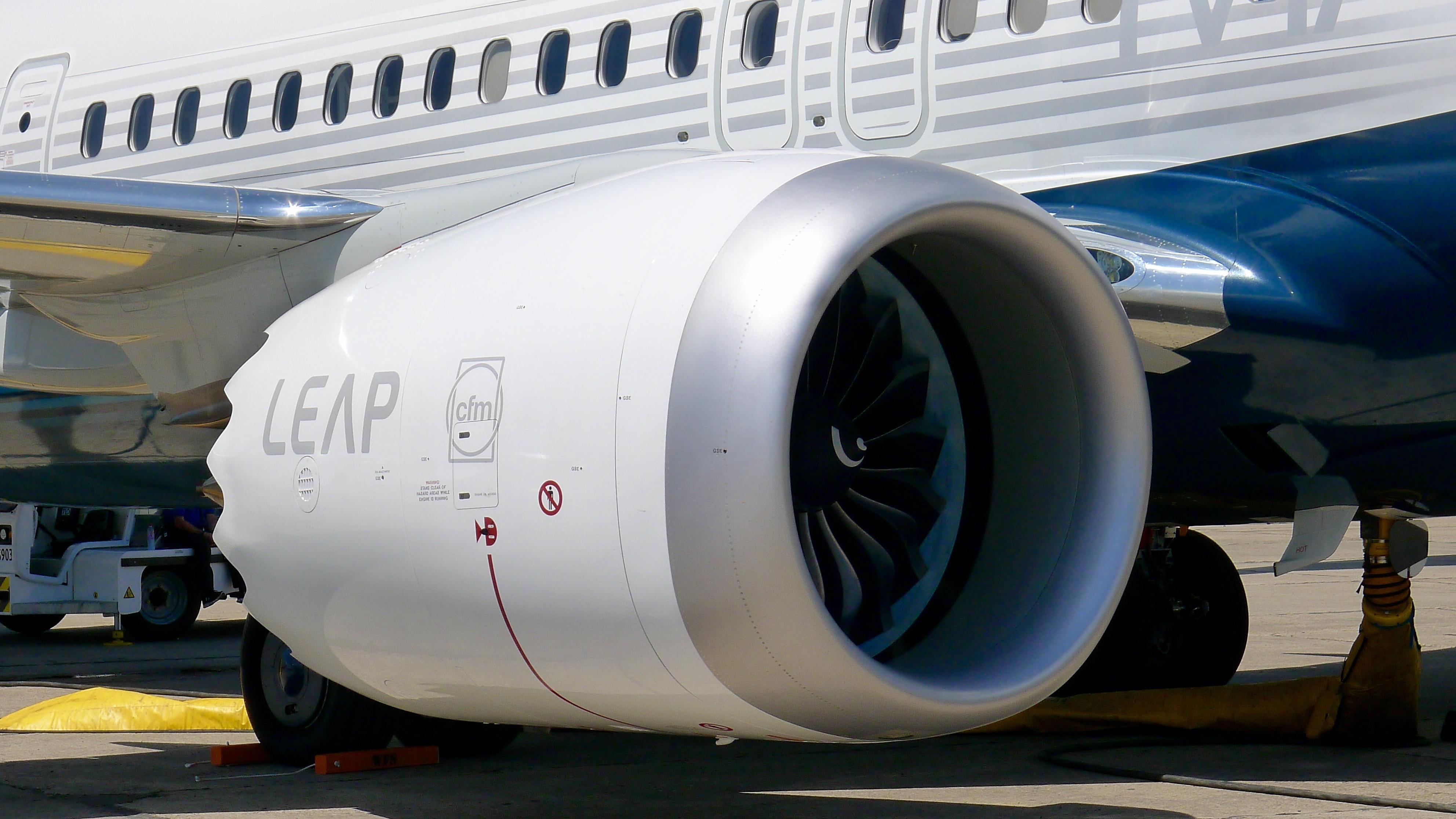
PARIS—Safran is adapting to the production halt of the Boeing 737 MAX, finding ways to mitigate the financial consequences, but the company is already measuring job cuts in four digits.
For CFM International, the GE-Safran joint venture that manufactures the LEAP turbofan, the initial plan was to deliver 2,000 engines—mainly LEAP-1As for Airbus and LEAP-1Bs for Boeing—in 2020. The forecast has been downgraded to 1,400, says Safran CEO Philippe Petitcolin, based on an average 10 LEAP-1Bs per week (roughly the equivalent of 20 MAXs per month).
The agreement CFM has found with Boeing, revealed Feb. 27 in the company’s 2019 earnings conference call, will enable Safran and GE to receive cash when a LEAP is delivered—roughly half of what it usually receives—even though Boeing does not deliver the aircraft.
Usually, a customer airline pays approximately 50% of the aircraft before the delivery and the corresponding portion is transferred to CFM for the engine. The remaining 50%-or-so of the aircraft are paid upon aircraft delivery and, again, the engine maker receives its share from Boeing. Under the new accord, Boeing is paying the latter part to CFM for each engine delivered.
Carriers early last year stopped making down payments before deliveries. CFM, like Boeing, will therefore have to wait until the situation returns to normal before they receive what should have been the first half of the total payment.
The agreement is effective for every engine delivered in 2020. For those engines that were produced in 2019, CFM will receive Boeing’s payments over 2020-21. The engine manufacturer is not storing engines beyond a contractual buffer, Petitcolin adds.
In 2019, the MAX’s predicament had a negative impact of €700 million ($770 million) on Safran’s free cash flow.
The LEAP-1B accounts for 80-85% of Safran’s shipset on a MAX, says CFO Bernard Delpit. Repercussions can also be found in cabin interiors and electric systems. With measures such as layoffs and terminating temporary job contracts, the employment impact of the MAX’s situation on Safran is calculated at 2,130 jobs globally.
Petitcolin is requiring every company in the Safran group to contribute to a “solidarity effort” that includes savings on direct costs and overheads, a hiring freeze and a reduction in research and development and capital expenditures for 2020.
The silver lining in the MAX’s cloud may be the capacity it creates at some suppliers. Airbus would like to increase A320neo production from 2022 and the problems Boeing is generating may help, Petitcolin suggests.
However, some small suppliers are badly hit. Their production has been drastically cut and they still have to make the same monthly payments to the bank that helped with investing in new, specific machine-tools. Petitcolin pledges his company is monitoring the supply chain’s health on a weekly basis.
In 2019, CFM delivered 1,736 LEAP engines, up from 1,118 in 2018. Revenues increased 17%, to €24.6 billion ($268 million). Operating profit grew 26%, to €3.8 billion. Free cash flow stood at €2 billion, an 11% improvement.





